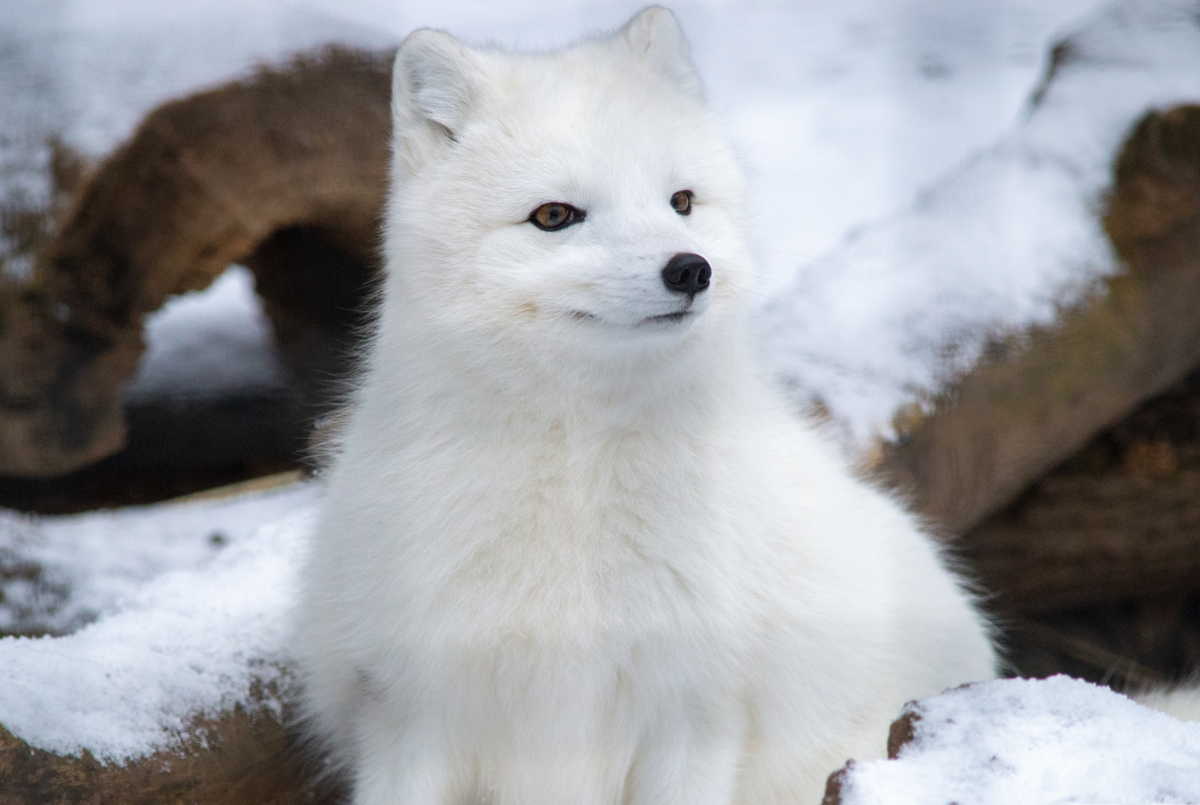Arctic Fox

Basic Information:
Scientific Name: Vulpes lagopus
Habitat: Arctic foxes are located in arctic and alpine tundras within the northern hemisphere.
Diet: Arctic foxes are omnivores and can eat small rodents, birds, insects, eggs, berries, reptiles, and amphibians.
Size: 0.8 to 1 foot tall / 1.3 to 2.3 feet long
Weight: 3.1 to 7.7 pounds
Lifespan: 3 to 8 years in the wild. Up to 14 years in human care.
Distribution Map:
I.U.C.N. Conservation Status:

What does this mean?
Least Concern – a species determined by the International Union for Conservation of Nature (I.U.C.N.) to be pervasive, abundant, and thriving.
About Arctic Foxes
As the red fox’s range expands into that of the arctic fox, these two species compete for food. The larger red fox also preys on the smaller arctic fox. Polar bears and wolves also threaten the arctic fox in two ways. When larger predators decline in numbers, they leave behind less carrion for the scavenging arctic fox. Bears and wolves also prey upon the arctic fox as a source of food. Despite all these hazards, arctic foxes are remarkably successful in most areas of their range.
Did You Know?!
- Arctic foxes have a great sense of smell and excellent hearing. Their small, pointy ears can hear their prey moving around in underground tunnels. When an Arctic fox hears its next meal scurrying under the snow, it leaps into the air and pounces, breaking through the layer of snow right onto the prey underneath.
- The arctic fox has a unique system of heat exchange that will not let her start shivering until the temperature drops to an astounding −70 °C (−94 °F).
- An artic fox’s fur changes colors depending on the season. In the winter months, it is a pure white. During the summer months it has a blue tint to it.
- Arctic foxes live in burrows with extensive tunnel systems. During blizzards, they also burrow into the snow for protection from the elements.
